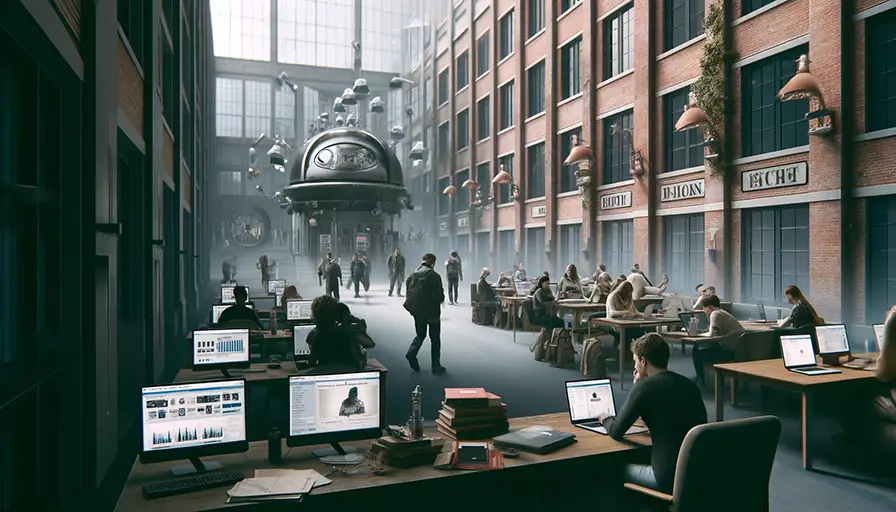The rise of digital proctoring software has introduced a new layer of surveillance that extends well beyond the boundaries of traditional exam supervision. Picture this: as you sit down to take an online test, there’s more than just a set of questions waiting for you. There’s a virtual overseer, tracking every keystroke, analyzing your facial expressions, and even following the movement of your eyes. This isn’t science fiction; it’s the reality of modern digital proctoring.
Install Incognito Browser now to access our exclusive report Is Your College Spying On You? Discover what lies beyond the exam room in the arena of digital proctoring, if you’ve ever felt like Big Brother is at your school and has more visibility than you would care for.
Such software promises academic integrity, ensuring that the sanctity of the exam room remains untainted, even in its virtual incarnation. However, what’s often glossed over is the intrusive nature of this surveillance. It’s not merely about detecting dishonesty; it’s a comprehensive monitoring system that scrutinizes your every move. For many students, this raises significant privacy concerns. How much of their personal space and data are they sacrificing on the altar of academic integrity?
The tools and technologies employed by these proctoring systems are sophisticated. They can lock down browsers, restrict access to external websites, and flag unusual behaviors for further review. But they can also record videos of students, capture screenshots, and even require biometric verification. The scope of data collected is vast and, in many cases, deeply personal.
This surveillance extends beyond the duration of the exam. Data retention policies vary, leaving many to wonder what happens to the recorded information long after the test is completed. Who has access to it? For what purposes might it be used? These questions linger in a legal and ethical gray area, with answers that are often unsettlingly vague.
At Incognito Browser, we believe in the importance of privacy, especially in the educational sphere where the freedom to learn should not come at the cost of personal privacy. Our research into digital proctoring practices is an eye-opener, revealing the extent to which surveillance has permeated the academic environment.
We invite you to delve deeper into this issue by downloading our comprehensive report on digital proctoring and student privacy. It’s a must-read for anyone concerned about the implications of such surveillance technologies in education. By informing yourself, you can join the conversation about finding a balance between upholding academic integrity and protecting students’ privacy. Install Incognito Browser now to access this exclusive report and discover what lies beyond the exam room in the realm of digital proctoring.



